If you grow any sort of garden, you need to learn how to preserve your bounty.(Courgette/Zucchini influx anyone??) While there are many ways including fermenting and pickling, a very popular way in the US, is canning. But with the price of canning equipment and supplies, is canning worth it? Let’s talk…
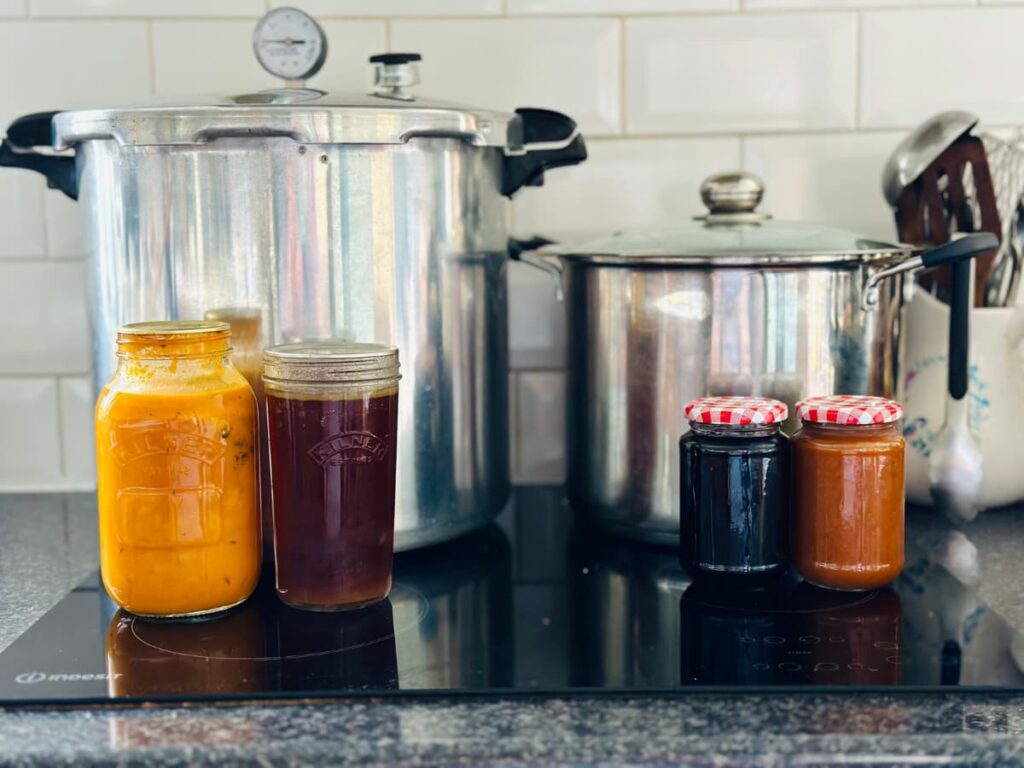
In the UK, we make jams and jellies.
We make chutneys and relishes.
But we don’t can them.
We put them into sterilised jars and let the heat seal the jar.
I can hear my American friends screaming at the top of their lungs, ‘you do WHAT!!???’
That’s what we have done for years and years.
Growing a garden and wanting some food security after seeing empty shelves far too many times gave me a new perspective, but do I need to invest in expensive equipment and learn a whole new skill to do it?
Is preserving your food worth the effort?
It takes effort. There is no getting around it.
Learning to can your own food takes effort. It takes time, it takes money and it can be scary. (I’ve heard all the stories of spoiled food and the risk of the dreaded ‘B’ word – Botulism….)
But the more I see the junk that companies put in store bought food, and the price they want to charge for it going up and up, the more I feel it’s worth my time to learn this skill.
Water bath Canning Vs Pressure Canning
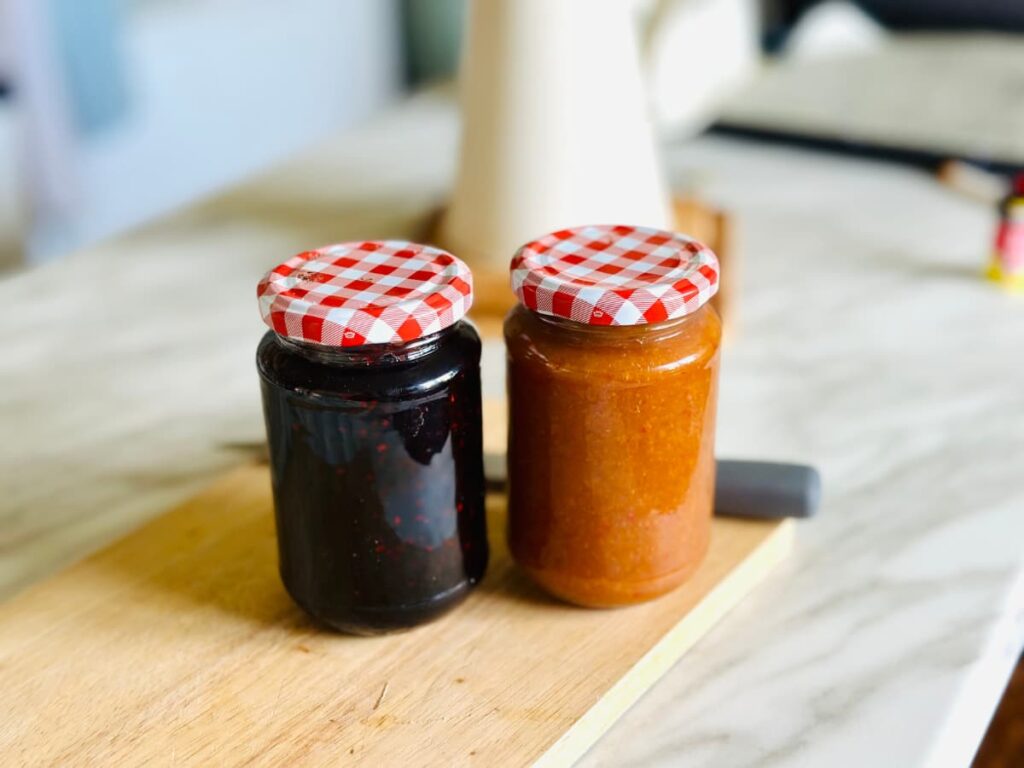
The first one most people dip their toe in with is water bath canning. Like I said, we don’t really do that in the UK and even now, I don’t always do it. I tend to do it with liquid recipes rather than jams and thicker sweet recipes.
Again that’s just a cultural thing, I think, but I have followed the recipes in my Ball canning book and they’ve turned out great when I’ve water bathed them.
This is probably the easiest to start with, as all you need are some jars and a large stock pot. It doesn’t require a lot of investment and it’s relatively easy.
Water Bath canning if for high acid foods like fruit and tomatoes (usually with a little added acid in the form of lemon juice or vinegar) because they can be safely preserved at lower temperatures. This is because the acidic environment makes it hard for bacteria to survive.
Safe canning recommendations suggest that anything from 4.6 or below on the PH scale is safe for water bath canning1
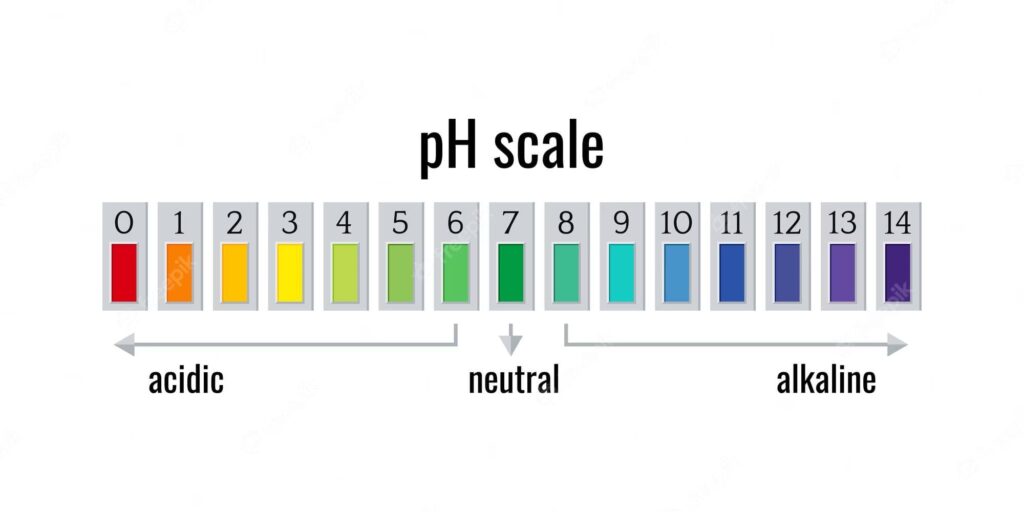
It’s a great way to preserve food growing abundantly either in your garden or in the lanes and fields around you. In the UK, blackberry (bramble) picking is a great late summer/ autumn past time, and making bramble jam is a great way to preserve them.
Of course, that’s only the tip of the iceberg, but you get the point..
Is pressure canning worth it?
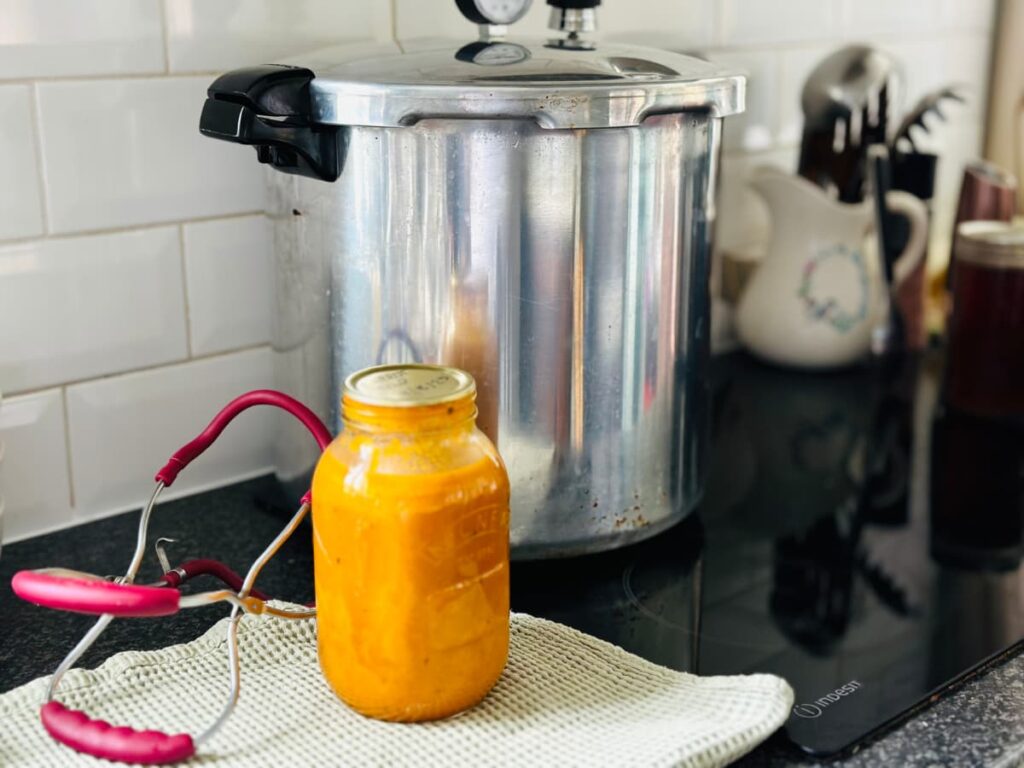
The other popular form of canning is pressure canning. This method requires some equipment though. A pressure canner, either stove top or electric are a must for low acid foods, such as meant and most veggies. These need to be processed at a much higher temperature to make them safe for long term storage.
A stove top Canner also needs to be watched carefully throughout the processing time, so it is a time commitment too. If the pressure drops too much, you need to start the processing time again.
Being BRAND new to this, I’ve actually found it less complicated as I’ve practised. If you can read instructions, you can use a canner.
What you eat also has a lot to do with pressure canning. We are not too keen on canned carrots, but eat a lot of soups and stews in the winter, and I make meat broths a lot, so it was worth the investment to us to put those on the shelf for a later date. If you don’t eat like that, it may not be worth it for you to invest the time in two or 3 recipes.
Is canning healthier than buying from the store?
Ahhhh the million dollar question…..
High pressure, high heat processing can always reduce the amount of vitamins and minerals in fresh foods.
However, knowing what is in the food we eat has become really important to me of late.
I’ve been reading about the ultra processed foods that line our shelves in the west, and it’s actually sickening. Like, literally making us sick. To know that my food is shelf stable without chemicals added that are going to affect my hormones and my gut is worth every second stood over the stove.
To know that these homecooked foods will still nourish us come winter, long after the garden has gone to sleep, is worth the investment in glass jars and lids.
And to know I can feed not only us, but others around us when the shelves look bare in the supermarket again is worth the time and effort it takes.
So is Canning Worth it?
Well, you have to decide that for yourselves, but for me, ABSOLUTELY YES it’s worth it.
What do you think? Is Canning something you have always done, or are you learning like me? Let me know in the comments below. Until next time, friends. x
Other posts you might like:
How to make an easy Lemon Curd
Resources:
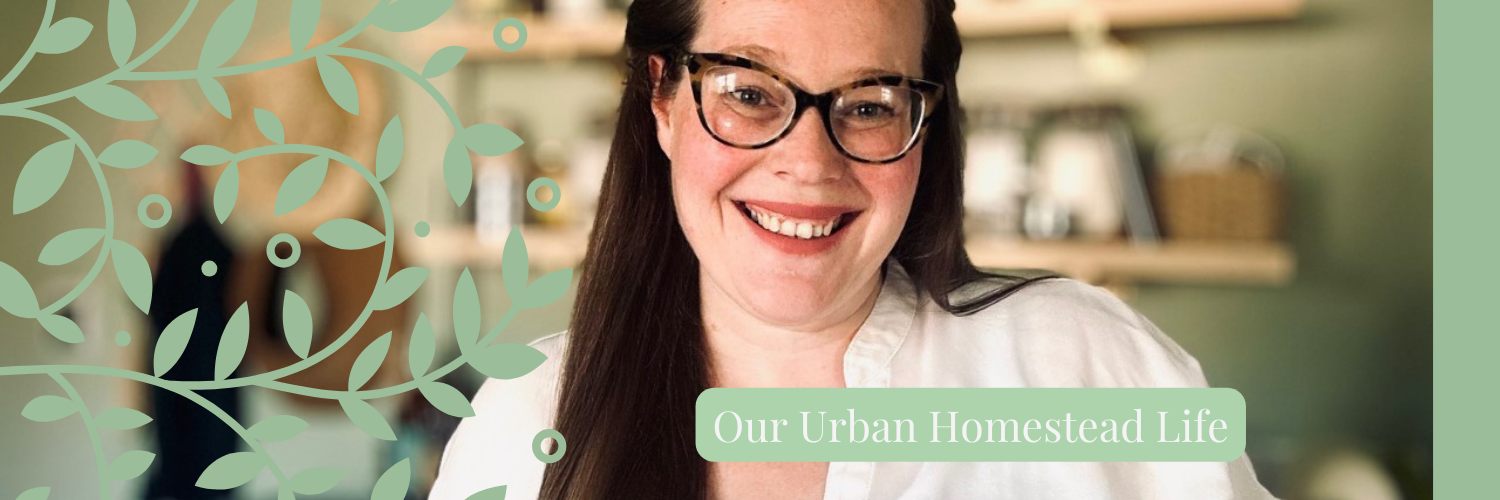
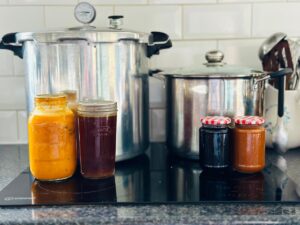
Absolutely worth it to know what exactly is in our own “fast food” but also to have that security of a well stocked pantry that we can rely in emergencies. For example my hubby doesn’t cook and I’m fine with that but what happens if I get ill and can’t cook? Not a problem now that we have shelf stable food that he can pop a lid and heat up.
I love this! So many ways to preserve fresh harvests. Thanks for sharing!
I’ve actually been asking this question because I want to learn! Thank you, I saved this for later 🙂
I have a canner that truthfully, I still have no put to use, I made blueberry preserves but did not make enough to can, we ate a bunch of it by the first week. So excited to really begin my journey with canning fall once the joy and business of summer slows down. Thank you! this post ignited my interest in canning again!